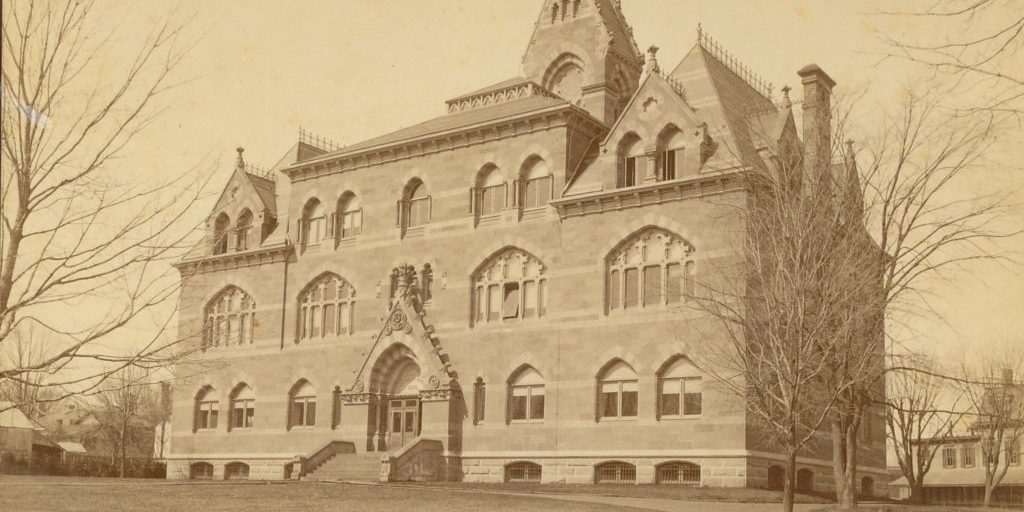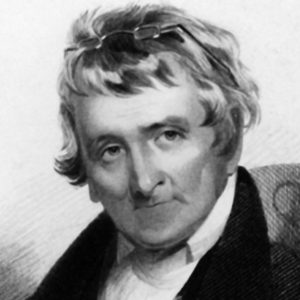
Universalism: False and Unscriptural
 The following is the entirety of chapter seven from Archibald Alexander’s seminal work, Universalism: False and Unscriptural (Presbyterian Board of Publication, 1851). Archibald Alexander (April 17, 1772 – October 22, 1851) was an American Presbyterian theologian and professor at Princeton Theological Seminary (Old Princeton). He served for 9 years as the President of Hampden–Sydney College in Virginia and for 39 years as Princeton Theological Seminary’s first professor from 1812 to 1851. He left several works in manuscript, including Duties and Consolations of the Christian, Patriarchal Theology, History of the Presbyterian Church in Virginia, Biographical Sketches of Distinguished American Clergymen and Alumni of the College of New Jersey, and Church Polity and Discipline.
The following is the entirety of chapter seven from Archibald Alexander’s seminal work, Universalism: False and Unscriptural (Presbyterian Board of Publication, 1851). Archibald Alexander (April 17, 1772 – October 22, 1851) was an American Presbyterian theologian and professor at Princeton Theological Seminary (Old Princeton). He served for 9 years as the President of Hampden–Sydney College in Virginia and for 39 years as Princeton Theological Seminary’s first professor from 1812 to 1851. He left several works in manuscript, including Duties and Consolations of the Christian, Patriarchal Theology, History of the Presbyterian Church in Virginia, Biographical Sketches of Distinguished American Clergymen and Alumni of the College of New Jersey, and Church Polity and Discipline.
The argument against universalism from general consent
If the New Testament were put into the hands of a thousand indifferent persons who knew the Greek language, but had never heard of the doctrines which had been derived from the book, and they should all be asked separately whether it inculcated the doctrine of eternal punishment for such as should die impenitent, there would be but one opinion in the whole. Whatever they might think of the reasonableness or justice of the doctrine, they would with one consent declare that it was plainly taught in that book. If a criminal were about to suffer capital punishment, whose life had been exceedingly wicked, could you advise him to set his heart at ease, and trust to universal salvation? Click To Tweet
This is not a mere conjecture, for we have in fact not only thousands, but millions of witnesses of this kind in the people of all nations, who from the beginning have embraced Christianity. During the successive ages in which this religion has been embraced by millions, and the scriptures translated into almost every language, this has been understood to be the undoubted doctrine of scripture with the exception of a very few speculative individuals.
On this subject the belief of the primitive church is undoubted. Except Origen and Clement of Alexandria, not one of the Fathers embraced such an opinion. All sects in the eastern or Greek church hold this doctrine to be taught in the New Testament. The western or Romish church has always held it. Every portion of the Protestant church has understood the Scriptures on this point in the same manner. Perhaps a few of the fanatic Anabaptists of Germany might dream of an escape from hell-torments, but even among them, with all their crude opinions, this opinion did not prevail.
Even the Socinians, who do not deserve to be ranked among Christians, did not venture to deny the eternity of future punishment. Faustus Socinus, the father of the sect, admits in all his works, and often reasons from it, against the vicarious sacrifice of Christ. What modern Unitarians think is not yet evident. I believe they are puzzled what ground to take. Such men as Priestley and Belsham were indeed believers in universal salvation, but whether this is the common belief of Unitarians, is not clear.
Until lately there never existed a sect calling themselves Christians, however heretical, who made universal salvation an article of their creed. On this point even Jews and [Muslims] are of one mind with Christians. And will you, then, O reader, venture your eternal interests on a doctrine so circumstanced? Until lately there never existed a sect calling themselves Christians, however heretical, who made universal salvation an article of their creed. Click To Tweet
Will you give more credit to these seducing teachers of universal salvation than to all the martyrs, fathers, and saints who ever lived? Finally, retire, I beseech you, into your own breast, and ask whether you are conscientious in cleaving to this doctrine. Inclination pleads for it, but what does conscience say?
In your most serious hours — in affliction and sickness, have you no misgivings — when death stares you in the face, are you not afraid to trust to this refuge of lies: Let me ask you, did you ever know a sinner to be reformed and converted from the error of his way, by means of this doctrine?! Did you never observe any case in which anyone was the worse for receiving this doctrine?! Have you known any who were recovered by the grace of God, from a vicious life, and still after their conversion held fast this doctrine?! And have you not heard of instances of men renouncing this doctrine, with abhorrence, as soon as they became penitent?
If a criminal were about to suffer capital punishment, whose life had been exceedingly wicked, could you advise him to set his heart at ease, and trust to universal salvation? Would you not think it safer for such a one to repent and flee to the peace-speaking blood of Jesus? Why then teach a doctrine which cannot be safely trusted in the last hour?!
*Read the entire issue of the latest Credo Magazine: Will all be Saved?

